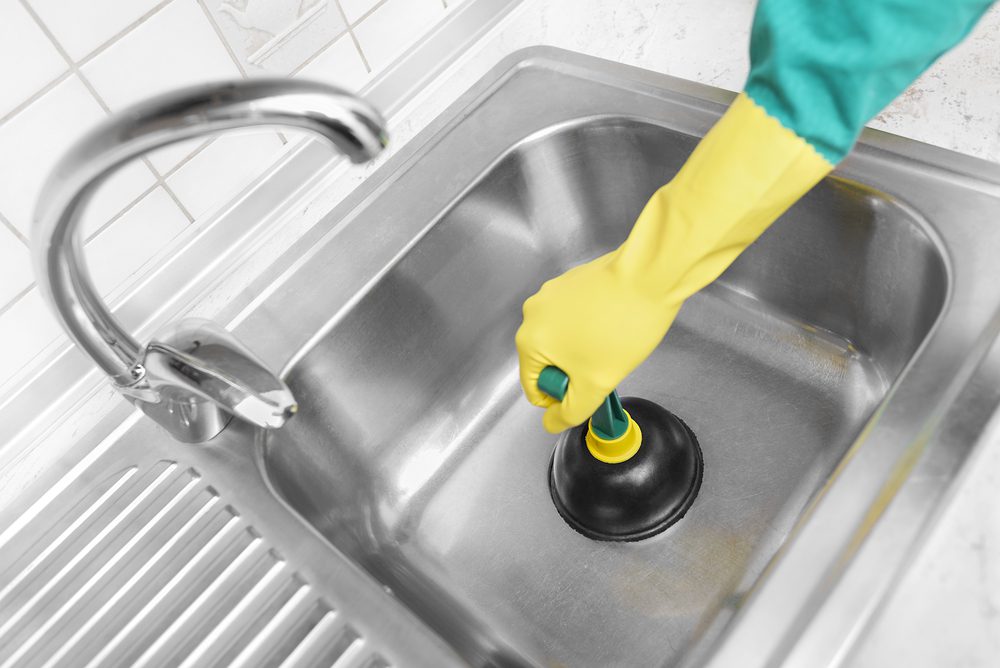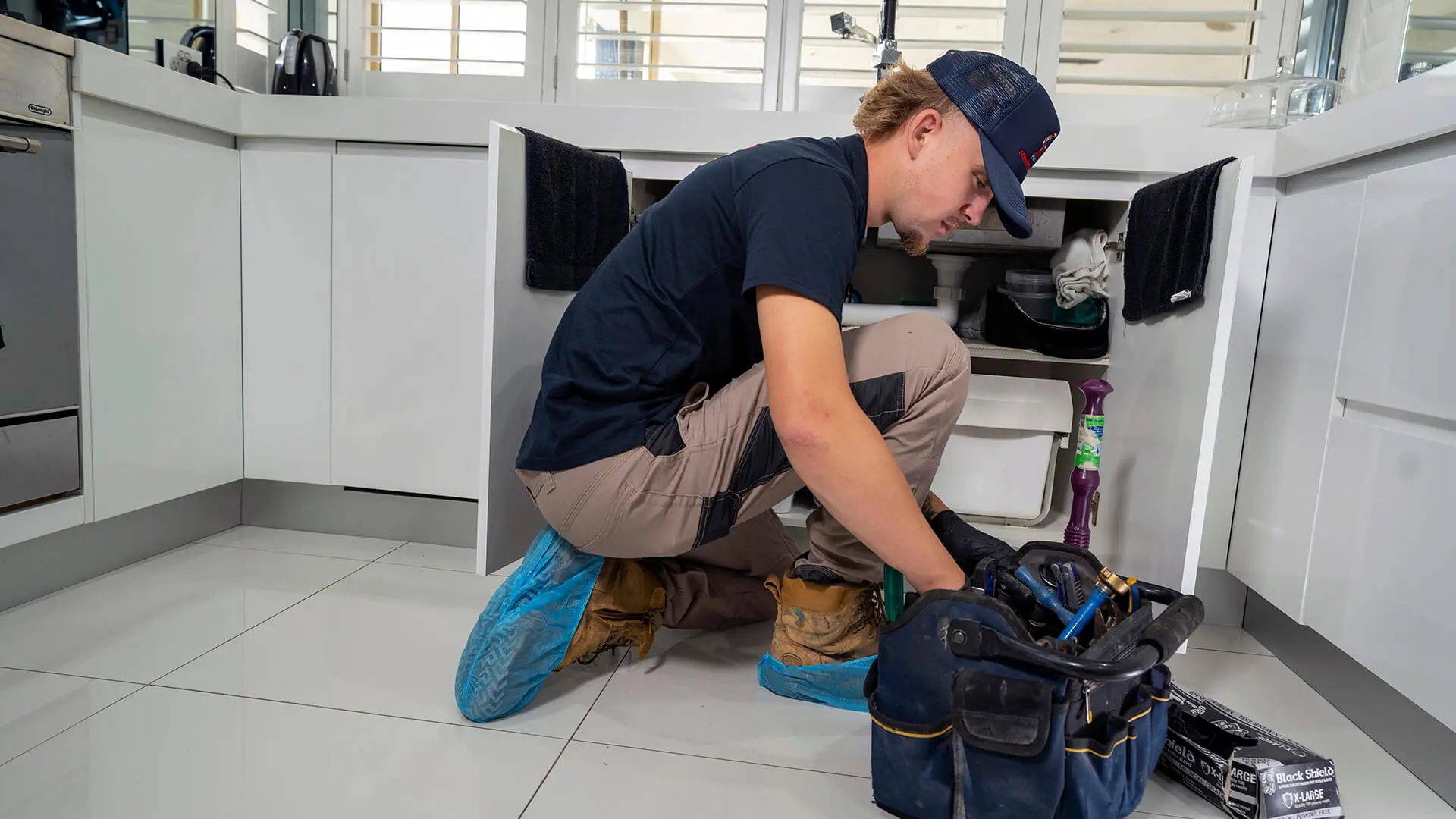Steps To Address A Slow-Draining Sink
Steps To Address A Slow-Draining Sink
Blog Article
They are making a number of great points regarding 7 Ways To Fix A Slow-Draining Sink Before You Call A Plumber in general in this post below.

Intro
We have actually all been there: You're cleaning your teeth or cleaning your hands, and you discover the water pooling in the sink. Instead of promptly swirling down the tubes, it lingers, transforming your once-refreshing morning regimen into a mini overload scene. A slow-draining sink isn't just frustrating; it's frequently an indicator of larger plumbing problems lurking under the surface area. Fortunately is that a lot of slow-draining sinks can be taken care of with a little know-how, a couple of basic tools, and some persistence. Prepared to tackle this job head-on? Allow's roll up our sleeves and dive right in.
Comprehending the Sources Of a Slow-Draining Sink
Before you start poking around in your pipes, it helps to know what might be creating the slowdown. Recognizing the source makes it less complicated to pick the appropriate solution.
Devices and Products You'll Need
The right tools make all the distinction. Fortunately, you won't require a completely stocked plumber's van to get the job done.
Step-by-Step Guide to Fixing a Slow-Draining Sink
Currently, let's get involved in the nitty-gritty. This step-by-step procedure will certainly assist you through basic techniques to recover your sink's water drainage.
Step 1: Eliminate and Tidy the Stopper
Commonly, the stopper (that small plug you push down to obstruct water) is the first perpetrator. Remove it carefully and clean off any type of hair or substance trapped around its base. Rinse it completely before putting it back in position.
Action 2: Make Use Of a Bettor to Dislodge Debris
Got that plunger ready? Placement it over the drainpipe and provide it a couple of firm pumps. The concept is to develop suction that can loosen up any kind of blockage. If you see bits of debris drifting up, you get on the ideal track.
Step 3: Try a Drainpipe Snake or Wire Hanger
If the bettor does not work, it's time to highlight the drain snake. Delicately feed it into the drain and spin as you go. You might really feel some resistance-- that's likely the blockage. Maintain turning and pulling until you get rid of the obstruction. If you do not have a drain serpent, a corrected wire wall mount can work in a pinch.
Tip 4: Apply a DIY Drain Cleanser
An all-natural cleaner made from baking soda and vinegar can break down recurring crud. Pour half a cup of baking soda into the drain, adhered to by half a mug of vinegar. Allow it fizz for about 15 mins, after that flush with hot water. This chain reaction usually does wonders for minor obstructions.
Step 5: Reconstruct and Check the Sink
Placed whatever back with each other and run the tap. Does the water currently swirl down the tubes at a commendable rate? If yes, offer yourself a pat on the back. If not, don't anguish-- there are still a few even more dress up your sleeve.
Vital Devices for Do It Yourself Repairs
A bettor is your best starting factor. A tiny, sink-sized bettor develops suction that can remove minor blockages. For even more relentless clogs, a drainpipe snake (often called a plumber's auger) functions wonders. A set of handwear covers, a flashlight, and perhaps a pair of safety goggles are additionally helpful.
Recommended Cleansing Solutions
Mild recipe soap and hot water can aid break down greasy build-up. A combination of baking soft drink and vinegar is a tried and true home remedy, and enzymatic cleansers offer a more environment-friendly technique. Keep chemical drainpipe cleansers as a last resource, as they can be rough on your pipelines.
Common Offenders Behind Slow Water Drainage
So, what's clogging things up? Commonly, it's a mixture of everyday particles-- believe hair, soap residue, toothpaste deposit, and leftover food bits. With time, these little bits accumulate and cling to the pipe wall surfaces, gradually tightening the flow and making it harder for water to go through. Sometimes, mineral deposits from hard water can likewise include in the crud, developing the excellent storm for stubborn obstructions.
When is it Time to Do Something About It?
If you discover the water draining pipes slower than usual, it's a great concept to interfere quicker rather than later. Waiting too long could cause finish blockages, unpleasant odors, or perhaps pipeline damages. If the water takes more than a few seconds to clear out after shutting off the faucet, consider it a warning and prepare to place on your do it yourself hat.
Safety And Security First: Safety Measures and Preparations
Before you launch into unclogging mode, think about safety. You're handling possibly unclean water and particles, so slip on a pair of gloves. If you're making use of chemical cleansers, guarantee the room is well-ventilated and adhere to the directions on the label.
Safety Equipment and Work Space Configuration
Lay down some old towels or dustcloths around the sink area to capture sprinkles. Eliminate any type of things that may enter your method, like soap dispensers or tooth brush owners. Make sure you have good illumination-- get a flashlight if needed.
Alternate Approaches for Stubborn Clogs
Not all blockages are produced equal. If your sink still declines to coordinate, think about these alternative services.
Sodium Bicarbonate and Vinegar Technique
We already discussed this, but it deserves keeping in mind once more. This mild, green technique is much safer than chemical cleansers and frequently rather efficient.
Enzymatic Drain Cleaners
Enzyme-based cleaners make use of all-natural microorganisms to digest organic matter. They're an excellent selection if you're aiming to prevent severe chemicals. Simply keep in mind, they may take a bit longer to work their magic.
Chemical Drainpipe Cleaning Company: Pros and Cons
Chemical cleansers can blow up via tough clogs quickly, but they're not without drawbacks. They can generate warmth and fumes, damage pipelines if made use of exceedingly, and pose ecological risks. Use them moderately, and constantly adhere to the directions meticulously.
Preventive Measures to Keep Your Sink Flowing
Avoidance is the very best treatment. By adopting a couple of simple practices, you can keep your sink from decreasing to begin with.
Normal Cleaning Routines
Clean down the sink container and fixture area routinely. Eliminate hair or food bits prior to they have an opportunity to wash down the drainpipe.
Avoiding Damaging Compounds Down The Tubes
Hesitate before discarding coffee grounds, grease, or fibrous veggie scraps down the sink. These culprits cling to pipeline wall surfaces, developing obstructions with time.
Regular Upkeep Checks
Arrange a fast monthly inspection. Run hot water via the sink for a few minutes, focusing on the flow. If it seems slow, act fast prior to it ends up being a full-blown blockage.
When to Call a Professional Plumber
Often, no matter how difficult you attempt, that clog simply will not budge. That's when it's time to bring in the pros.
Indications That Show a More Severe Concern
If your sink drains pipes slowly despite multiple attempts, or if you observe water supporting in other fixtures (like your shower or toilet), you might have a more serious plumbing issue lurking deeper in the system.
Balancing DIY Efforts with Expert Help
While do it yourself can conserve you money and provide a sense of accomplishment, there's no embarassment in calling a specialist. An expert plumber can evaluate your whole pipes arrangement, making certain there's no underlying damages or lasting issue that could cost you extra in the future.
Comparing Prices and Long-Term Solutions
Before making a decision, take into consideration the big picture. A cheap, quick fix may solve the issue temporarily, but buying a more irreversible solution might conserve you cash and stress over time.
Considering the Expenses of DIY vs. Specialist Fixes
DIY fixes commonly set you back little bit more than the price of a plunger or a bottle of baking soda. Expert services, on the other hand, included a price however might protect against repeated problems and pricey repair work later on.
Buying Quality Fixtures and Upgrades
If your sink's layout adds to constant clogs, it could be worth updating to higher-quality components or changing the plumbing layout. Consider this a financial investment in your house's capability and convenience.
Final thought
A slow-draining sink can feel like a small irritation, but it's commonly an indicator that your plumbing requires a little tender loving care. By recognizing the origin, using the right tools and methods, and dedicating to easy safety nets, you can keep your sink flowing openly. And when all else fails, never be reluctant to hire a specialist-- your home's plumbing is worth the investment in treatment and upkeep.
Three Common Ways to Fix a Slow Drain
Baking Soda Method
Boil a full pot of water. Measure out cup of baking soda and pour it down the drain. Then take cup of the magical cleansing substance known as white vinegar and drop that down there too. Allow the mixture to fizz in the drain for five minutes as the vinegar and baking soda combine. Now dump in that whole pot of boiling water. This combination of cleaning substances should clear out anything that is causing your sink to drain slowly. If it doesn t...
Zip-It
If the baking soda method doesn t clear out your drain, it may be because a significant amount of hair and/or other debris has collected there and you need to remove it. Purchase a Zip-It tool at any home improvement or hardware store and insert it into your drain. It will catch any collected hair or debris that s blocking the flow of water. Pull it out. If it s got a big clump of hair, etc. on the end, you ve probably got your culprit.
Drain Cleaner
If these methods don t work, there is the standard drain cleaner that you can also buy in a hardware store or even your local grocery store. It s better if you can use a household solution, but these drain cleaners often work in a pinch. They re very simple to use. You generally just dump them in your drain and wait. If even this method is not effective, it may be time to call the plumber.
https://www.mrrooter.com/oneida/about-us/blog/2017/july/three-common-ways-to-fix-a-slow-drain/

I ran across that blog posting about Three Common Ways to Fix a Slow Drain while doing a search on the internet. Those who appreciated our article if you please make sure you remember to pass it around. I praise you for your time. Kindly check up our blog back soon.
Click Here Report this page